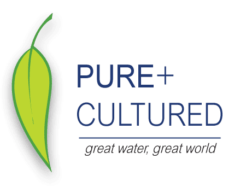Fatbergs
I create fatbergs. And so do you.
Our biggest selling products go in to regional areas with septic tanks, RVs with holding tanks and toilets as well as men’s toilets to control uric acid.
However, our biggest selling product SHOULD be going in to urban areas and cities where there are lots of people.
If it did there would be less pollution of our waterways, less stress on our sewage networks, immense water savings and a greener planet.
I consider myself a modern man with an eye for the environment. But there are things that I do – by accident (by living) – that harm the environment. And, sorry to tell you this, but you do too.
Without meaning to, I put things down my sink that affect the natural balance of things. Even though I scrape my plates and cooking gear, I still rinse a bit of fat down the pipes when I wash things. Things like butter, oils, grease, some sauce. Small amounts and they just disappear. Perfect?
But as they travel through your pipes they cool, then reset, then start getting stuck on the surfaces of your pipes.
Not so perfect. But it gets worse.
The next time I do it the next batch sticks with the first. But I have also sent down some very small food scraps. (I don’t mean to do this either as I mulch all the big bits). They join in the fun and get stuck in the yuck. Then they start to rot. They create a breeding ground for bad bacteria.
But there is more. Because I am a modern man I wash regularly. And without meaning to, I add some more things to the mix. Not just soap (which also can harden down the line) but flakes of skin and hairs. So all this organic “stuff” sticks together and creates a bigger fatberg for more fats and oils to cling to.
Some of this gets flushed away of course (otherwise your sink stops emptying, or your toilet backs up). But …
… even if you start with a brand-new house or unit, after 3 months your pipes have considerably narrowed from your very own fatberg.
Not so perfect. But it gets even worse.
What does get flushed from your property joins up with what gets flushed from others’ properties. Now the things that we didn’t mean to do start working on a grander scale.
My fatbergs cling to your fatbergs and slow down the whole flow of the sewers. Eventually they stop the flow altogether and the system breaks. This happens more than many of us realise.
Raw waste then leaks and it’s not just the smell that is an issue. In my area this created an outbreak of blue green algae and is attributed to the deaths of almost an entire colony of pelicans on an island in our waterway.
What I put down my sink and toilet effects the environment. It remains untreated until it gets to the treatment plant. That could take days and days to get there.
Fortunately, (for our drinking health) the water we use to flush these things have no bacteria – good or bad. Unfortunately, that means that once flushed, rotten food and fats create a breeding ground for bad bacteria.
But what if we treated our homes with Micro Pure? Treat our own waste water when we use it? The answer is perfect!
You would stop creating your own fatbergs. I have!
Our microbes turn my tiny organic stuff in to just – water. I know. I’ve seen it. It doesn’t look nice and I wouldn’t drink it but it doesn’t smell and it pours just like water.
This is nature’s good microbes at work. Healing the environment as it has for billions of years. We’ve been harnessing microbes to help us for thousands of years – ever since we invented bread and beer and cheese (and a thousand other things).
If you live in a city and don’t think what you do impacts the environment, I have news for you.
In all the main coastal cities in Australia there is billions of litres of untreated or only primary treated waste deposited in to the ocean not that far from where you live. By pipes – continuously.
Our big dream at Pure and Cultured is that everyone uses Micro Pure in their home. If they did then the only thing going in to the ocean from us would be water.
Perfect.
Thanks for reading.
Take care,
Graham

